On August 11 2020, The Principal Scientific Adviser to the Government of India in partnership with the Armed Forces Medical College released “Building Positive Health in Nine Simple Steps: Effective Habits for a Healthy Life” – a simple visual guide for and easy reference for people to understand the link between lifestyle choices and positive mental health.
Link to the entire Guide by GOI is here: https://psa-prod-static-files.s3.ap-south-1.amazonaws.com/publication/PSA_AFMC_MentalHealthGuide-English.pdf
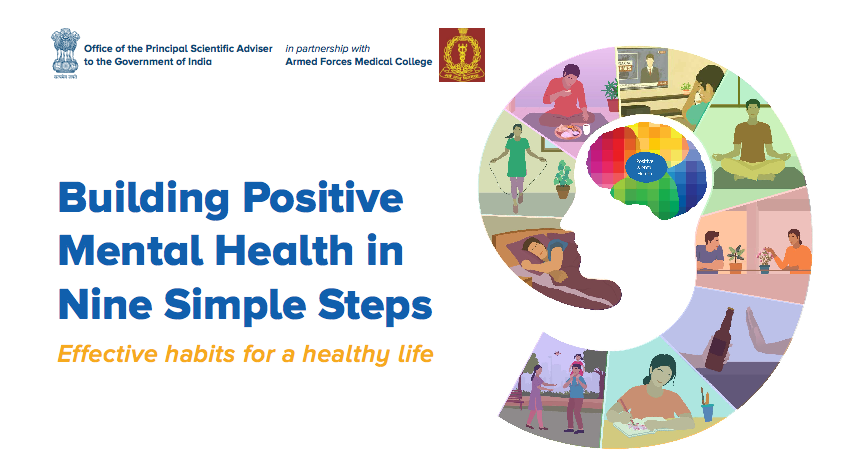
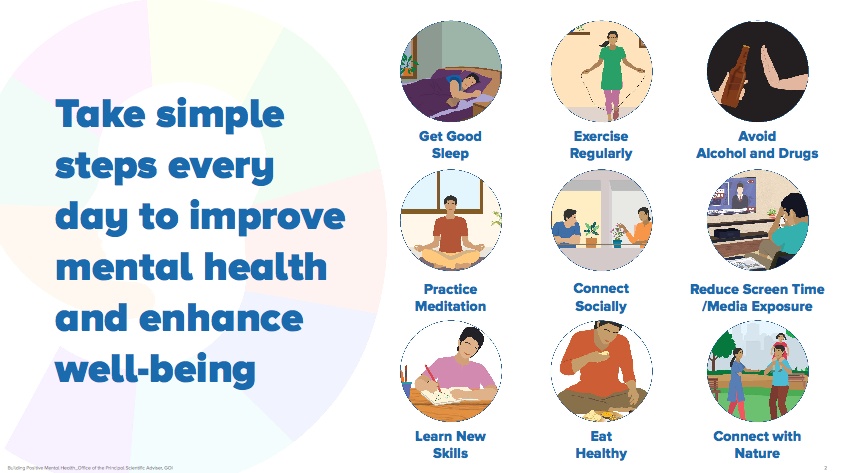
Our research and design team at Vertiver is proud of having the opportunity to work with the Office of the PSA and AFMC as the knowledge and design partner for the visual guide. In the initial phase, the research team deep dived into journals, articles, research papers to understand the whole spectrum and magnitude of the problem. While our research revealed a lot of grim facts and figures like 1 out of 4 people suffer from some form of mental health issues, we conducted in depth study to understand how social stigma and discrimination often prevent people from discussing their problems and reaching out for help.
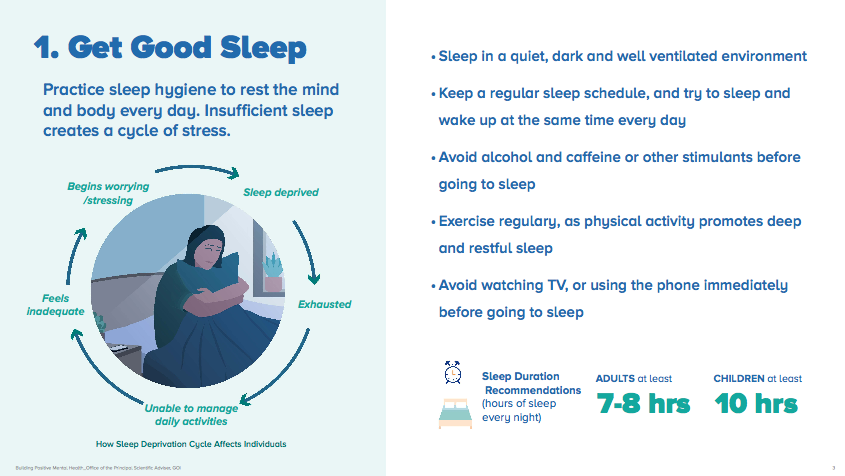
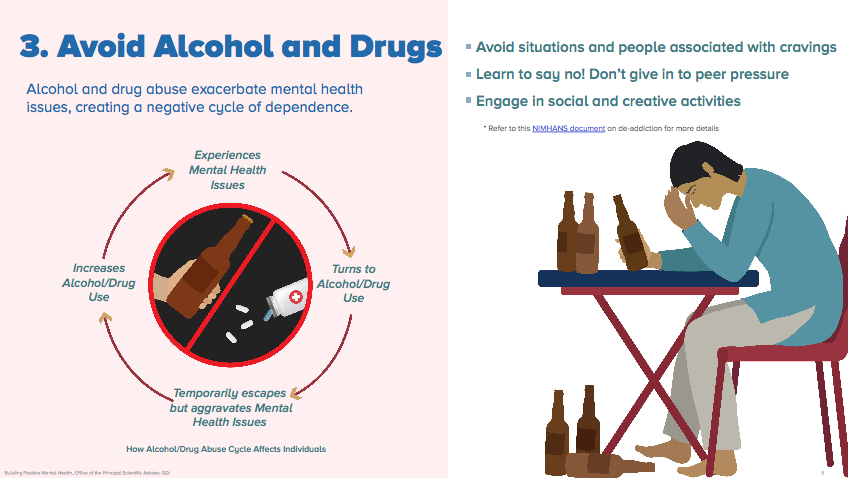
The World Mental Health Day is celebrated on the 10th of October and we would like to take this opportunity to discuss our process of visualization and design in creating the guide. One of the key challenges was to ensure that our visual guide was tailored specifically for the Indian mass; not just in terms of the visual style and aesthetics but also the nuance in the content that drove the messaging. Unlike other scientific concepts communication, the problem with the subject of mental health was that this field has seen very little work in India and there is hardly any reference. This also worked to our advantage in a certain way since we had the full liberty to establish a visual storyline that was entirely our own understanding.
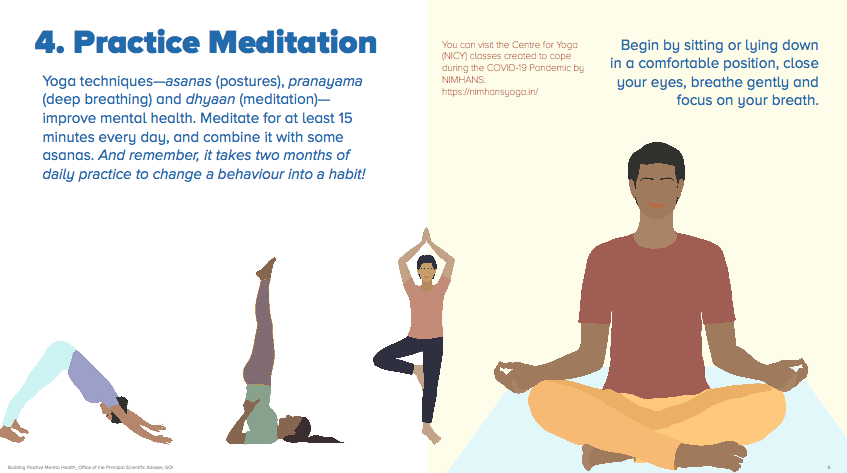
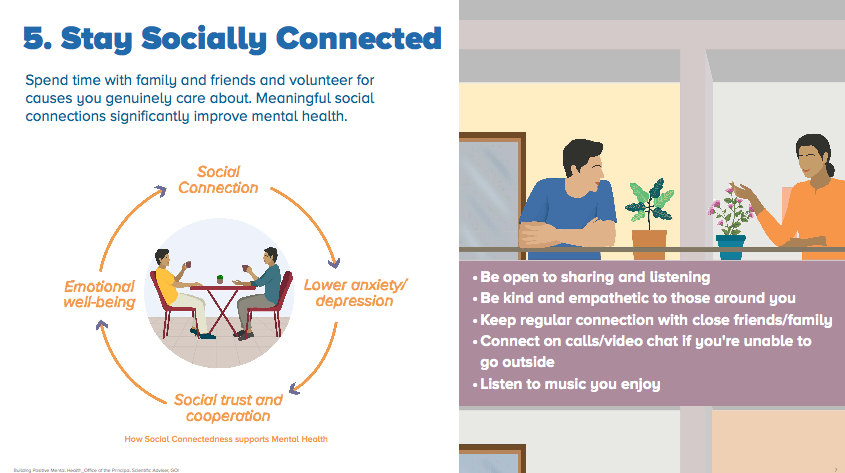
We ensured that our visual language was driven by minimal aesthetics so as to strike a great balance between the content and the visual style while giving the content the required focus that it deserved. We used bright earthy tones for our colour palette to ensure that it had a very global approach while also reflecting the positive outcome of the simple steps outlined to build positive mental health.
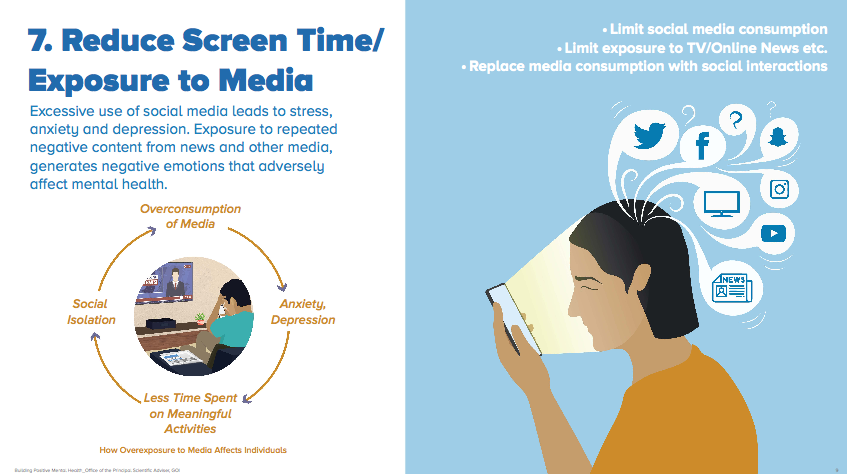
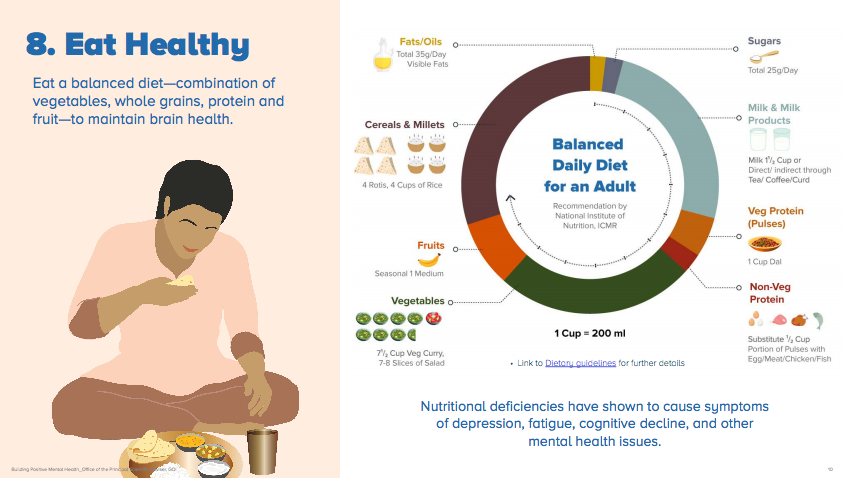
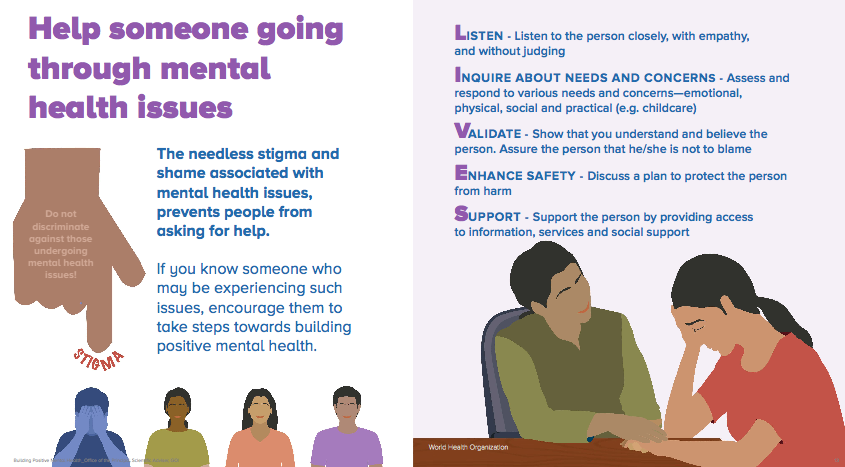
Apart from communicating the scientific aspects for each of the 9 simple steps, raising awareness, encouraging education and promoting advocacy against stigma were some of the key goals of creating this guide. Apart from breaking down complex scientific terminologies and processes that affect the human mind through simple visuals and negative feedback loops, providing a list of resources for mental health was also a key part of the Guide since our research revealed that lack of knowledge and lack of timely help often hampers treatment and cure of mental health issues.
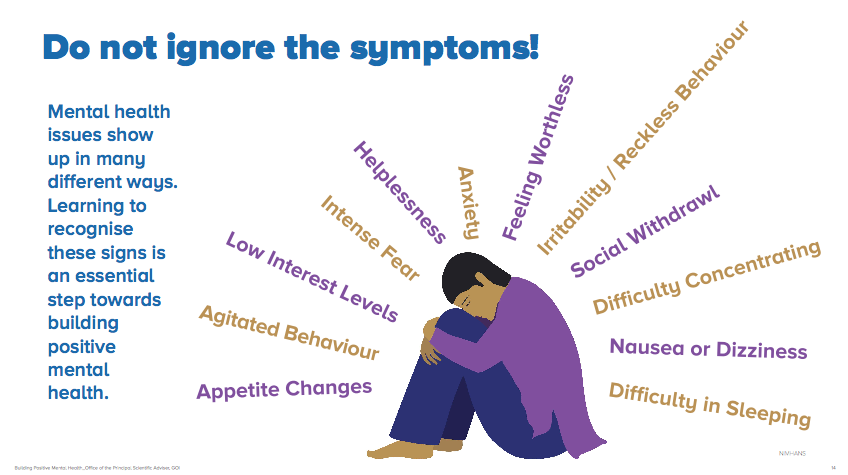
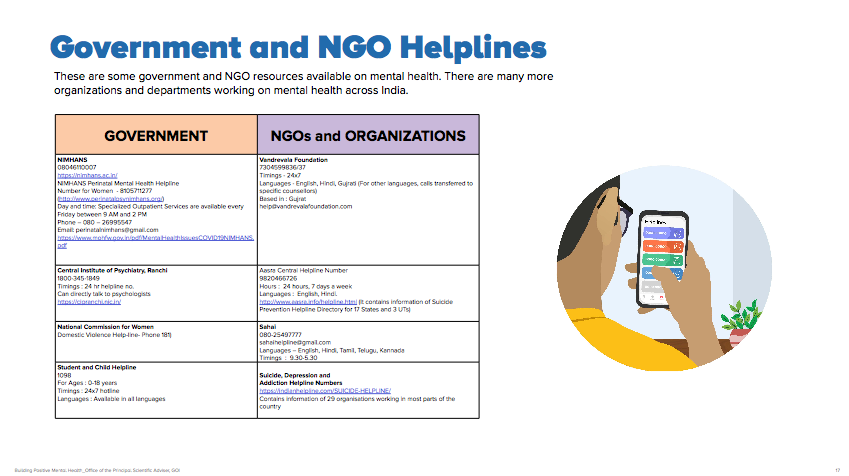
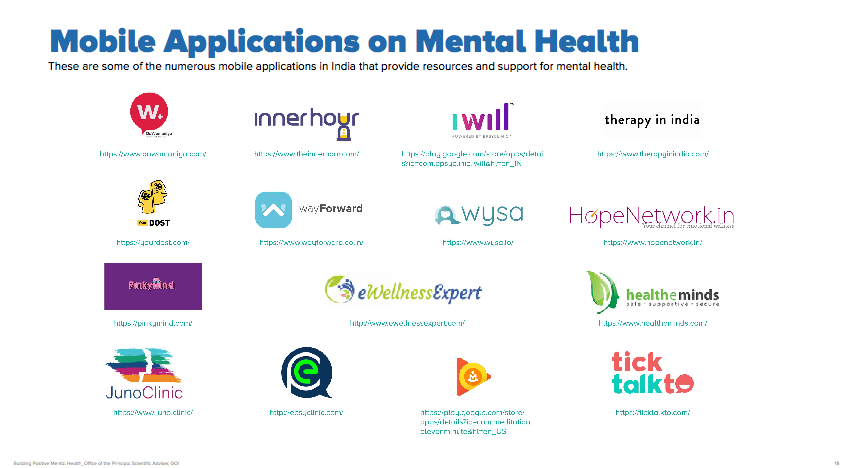
One key aspect of this guide was that it provided a comprehensive list of online platforms and apps in the Indian context that could remotely connect people suffering from mental health problems to doctors, psychiatrists, counselors and the necessary help that is required. This removes the barrier of hesitation for physically visiting a doctor and also allows people to access health as and when they require.
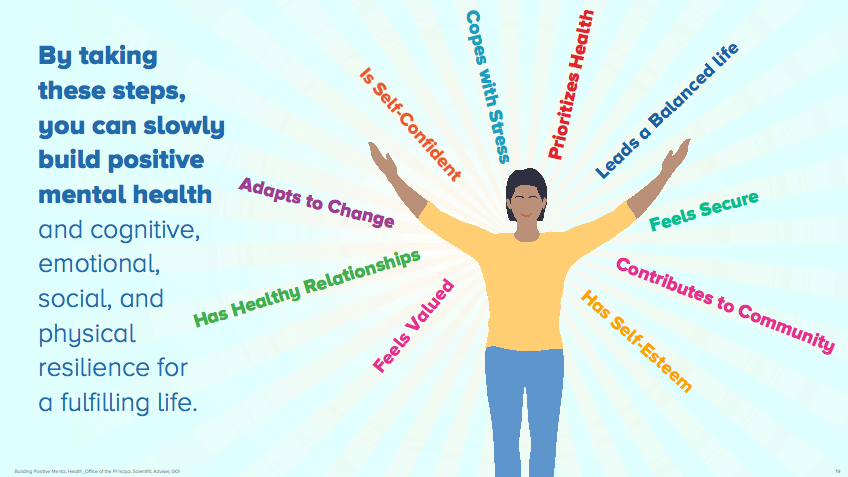
Mental health awareness and education are equally important aspects while fighting the problem and these are key steps towards reducing stigma around treatment. Based on our research, stigma emerged as one of the key barriers to seeking mental health treatment. People are afraid to talk about their experiences that might be causing them a lot of suffering. Not talking about experiences often limits the opportunity to learn what kind of treatment might be available. The more we as a community, loved ones, friends and family start talking to others experiencing mental health issues, the easier it becomes to access treatment and find the right support. The WHO’s LIVES method (Listen, Inquire, validate, Enhance Safety, Support) is a great tool that can be adopted by anyone to offer support to anyone suffering from mental health problems.

Recent Comments